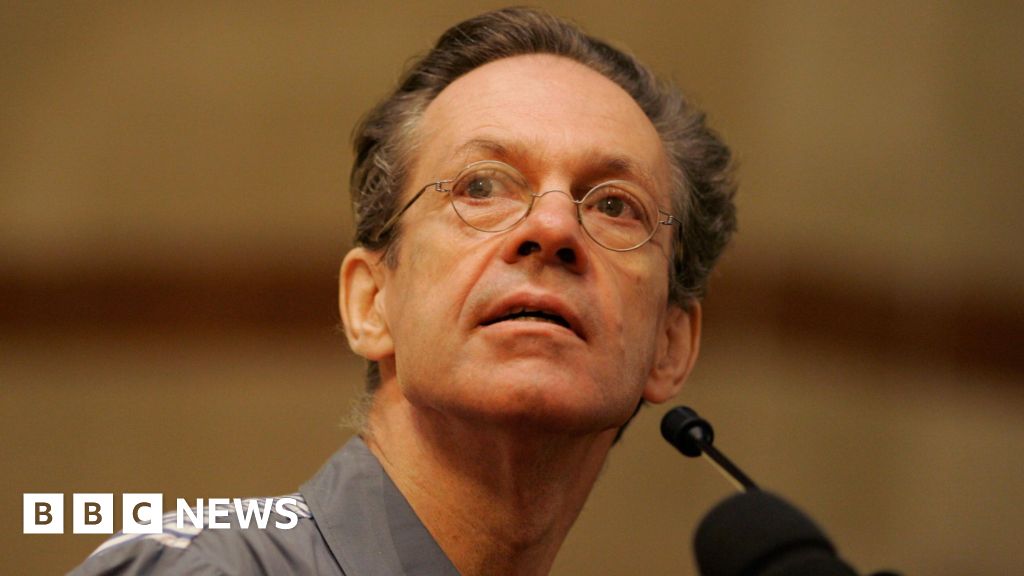Uber staff revolts over return-to-office mandate

Uber is facing internal staff unrest as it attempts to implement a three-day-per-week return to office (RTO) mandate and stricter sabbatical eligibility.
An all-hands meeting late last month descended into acrimony as staff flooded the online meeting chat with queries about why the mandate was being enacted. “How is five years of service not a tenured employee? Especially when burnout is rampant in the org,” read one message that was reviewed by CNBC.
Following the meeting, Nikki Krishnamurthy, Uber’s chief people officer, issued a memo saying staff had “crossed an acceptable line” during the call. It’s unclear if there has been any disciplinary action to date.
But the dissatisfaction displayed during the call wasn’t a one-off; the general demeanor of the company’s 31,100-person staff has dropped in recent months, says one Uber employee who was on the contentious call. (The staffer was granted anonymity to speak freely about the organization’s morale.)
“I felt it from the performance review/promo cycle,” the staffer says. “I heard a lot of complaints about unfair evaluations. I’ve been a top performer since I joined, and I got a similar evaluation. So it wasn’t personal to me. But I had senior and staff friends leaving.”
That general malaise and unhappiness came to a head during the heated all-hands meeting last month. The return to office was discussed on the call, and received badly by Uber staff. “The messages were flowing crazily fast,” the anonymous staffer told Fast Company. “The general discontent was crystal clear,” they added, but the scale and speed at which comments were being typed made it difficult to keep track. “I even tried to download the chat logs, but they are not available to download,” the employee explained.
On the call, a recording of which was obtained by CNBC, Uber CEO Dara Khosrowshahi said: “We recognize some of these changes are going to be unpopular with folks.” Krishnamurthy deemed some of the employees’ responses “unprofessional and disrespectful.”
Of those the staffer could see, the queries were “mostly fair questions about the reason [for the RTO]” and not disrespectful, as Uber’s chief people officer claimed, in their opinion. The queries centered around how RTO benefits were being cut for staff while total compensation for the executive team was being tabled at the same time.
A spokesperson for Uber said in an emailed statement: “It’s hardly a surprise that not everyone was thrilled about changes to remote work and sabbatical policies. But the job of leadership is to do what’s in the best interest of our customers and shareholders. Being in person more frequently is better for collaboration, innovation, and company culture.”
Uber instituted “anchor days” in 2022, with employees expected to work in the office on Tuesdays and Thursdays. Starting in June, they’ll be required to be in the office Tuesdays through Thursdays.
After the COVID-19 pandemic created the norm of working from home, companies are starting to increasingly ask employees to return to the office as they adjust to a competitive artificial intelligence-fueled world and economic concerns.
“Folks want some autonomy, some control over their life,” says Cary Cooper, an organizational behavior professor at the University of Manchester in England. “Employers that are mandating to have to return to the office all the time are just going to lose talent. Simple as that.”
Cooper adds that companies that foist a return-to-office mandate on their staff are signaling their lack of faith in employees. “They’re communicating: ‘We don’t trust you’,” he says. “ ‘We think your working from home means you’re going to go out, play around, dick off, and come back and work for a couple hours.’ It communicates, ‘We don’t value you, and don’t trust you.’ ”
In last month’s meeting, the employee says, there were also “a lot of questions about transparency and asking whether Dara was following the ‘do the right thing’ and ‘one Uber’ values,” referencing the company’s explicit commitment to act properly and prioritize the well-being of the team, respectively. The general tenor of the online meeting chat was that executive-level staffers didn’t understand the level of unhappiness, the employee says. Instead, Khosrowshahi was laser-focused on broader goals for the company.
“Dara was introducing a prioritization and strategy framework we should all follow,” the staffer says. “During his presentation, many messages in the chat were saying that that was the wrong moment to talk about that, because we all wanted answers about the recent changes.”
For its part, Uber has managed to grab strong demand despite concerns that customers are shying away from rides and food deliveries. The company said this week that it had $11.5 billion in revenue in its most recent quarter. It also predicted that bookings for its current quarter would increase more than Wall Street expected. Still, shares had fallen as much as 5% in after-hours trading on that report.
What's Your Reaction?
 Like
0
Like
0
 Dislike
0
Dislike
0
 Love
0
Love
0
 Funny
0
Funny
0
 Angry
0
Angry
0
 Sad
0
Sad
0
 Wow
0
Wow
0



























































































